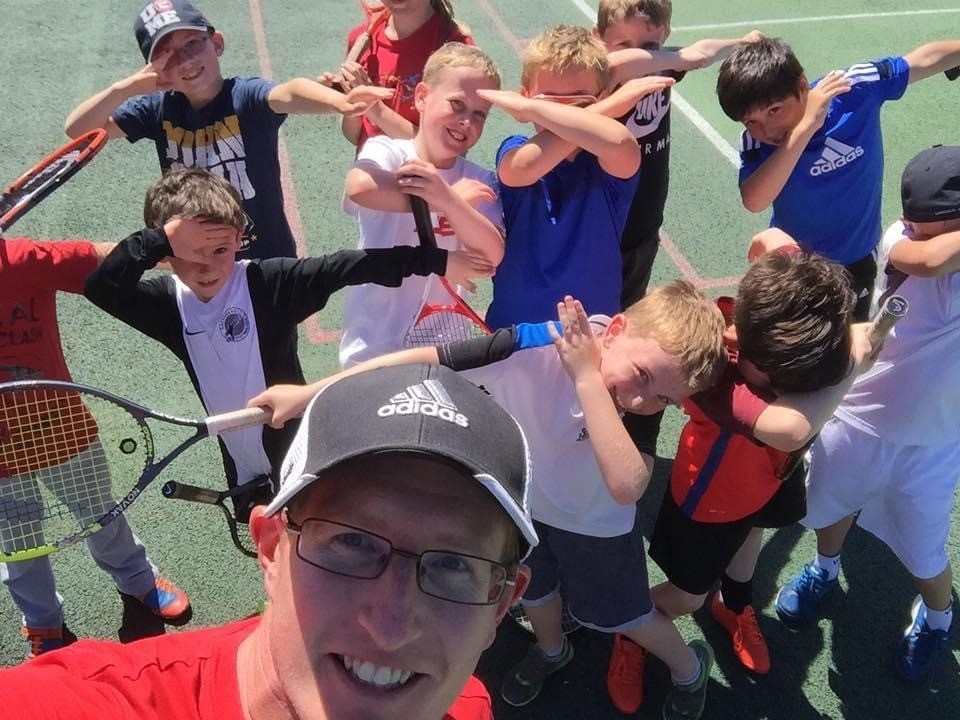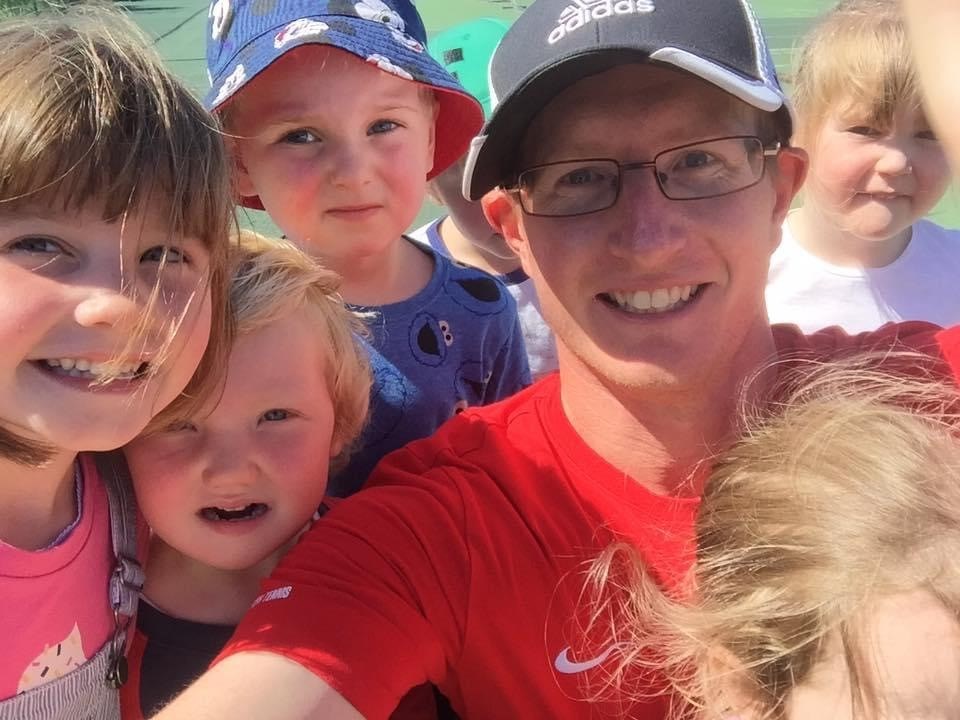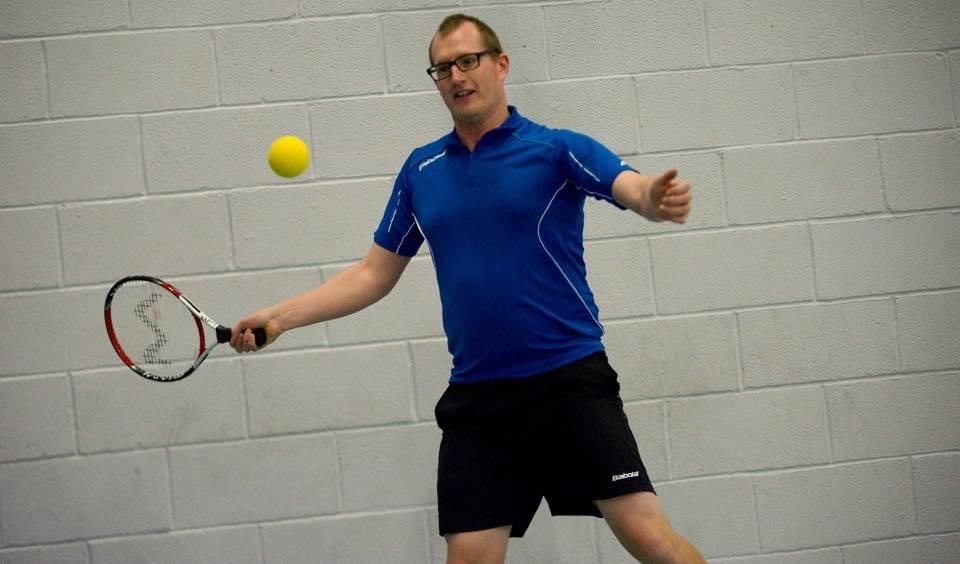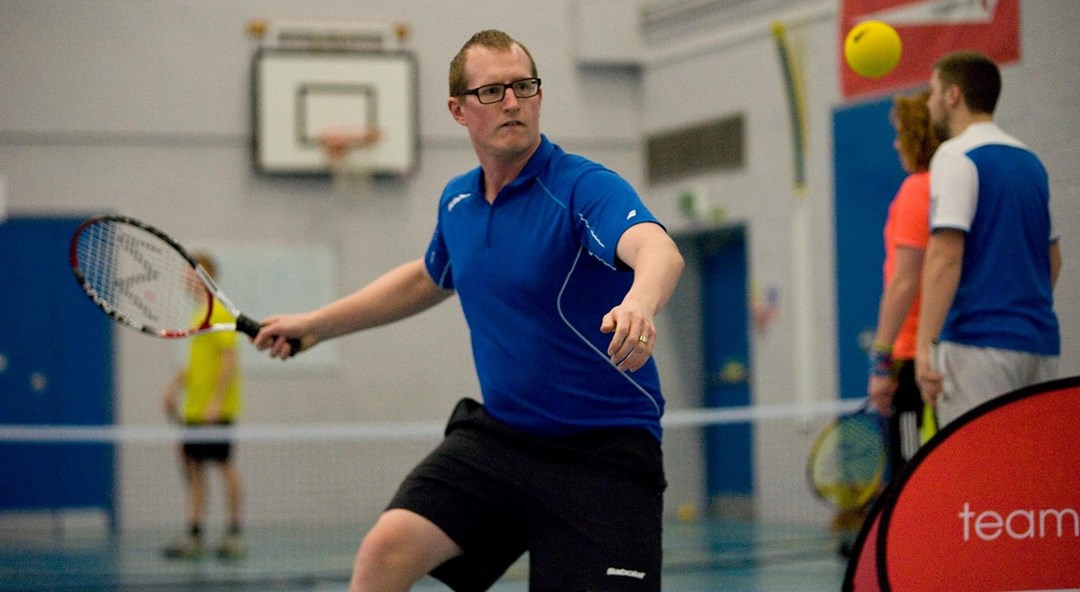
“Tennis undoubtedly contributed to me saving my life”: Pride in Tennis founder discusses his battle with loneliness
• 3 MINUTE READ
My name is Ian Pearson Brown, my pronouns are he/him, and I work in tennis as a full-time coach in the Northeast of England.
I’m proud of my Geordie routes, and the fact that I’ve worked in the industry for 22 years, helping to develop and grow tennis, my first sport, and my first love.
...my first sport, and my first love.
I am also the founder of pride in tennis, which is the LGBTQ+ inclusive network in partnership with the LTA’s inclusion and diversity strategy.
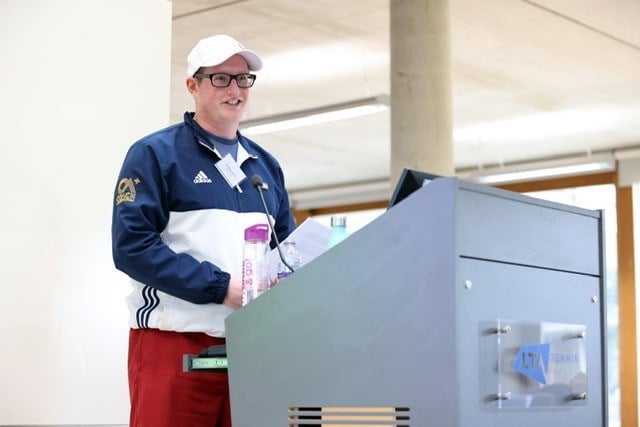
As a child growing up in the Northeast in the late 80s and early 90s, I was that typical sports mad Geordie kid. P.E. was my favourite subject at school; I’d always be that kid on the yard at break time with a ball of some description – whether it be a football or tennis ball – and that was me growing up.
When I was 13 and I realised I was gay, and my world turned upside down - I didn’t think you could be involved in sport and be gay. That created a lot of mental health problems for me – only at that age did I have the confidence to come out that I was gay in the sporting environment.
As I had taken up tennis as my full-time profession, I always worried about how I may be perceived. I was openly gay teaching children, and I bought into a lot of the stigmas and stereotypes that were in my environment around that time, so the conflict of that caused me stress, anxiety, and depression.
In fact, my mental health improved significantly when I did come out - all the issues that I thought I would have just didn’t materialise, and the more people I told, the better I felt.
When I came out in sport and I realised that, actually, it can be an environment where people can thrive as their authentic selves, I felt the need to give something back to a sport that I felt had saved my life through the dark times.
...I felt the need to give something back to a sport that I felt had saved my life through the dark times.
That’s why I founded Pride in Tennis as a network, and I am now working with the LTA to try and help the next generation of athletes, coaches, players, and fans realise that you can be your authentic self in tennis and there should be no problem with that!
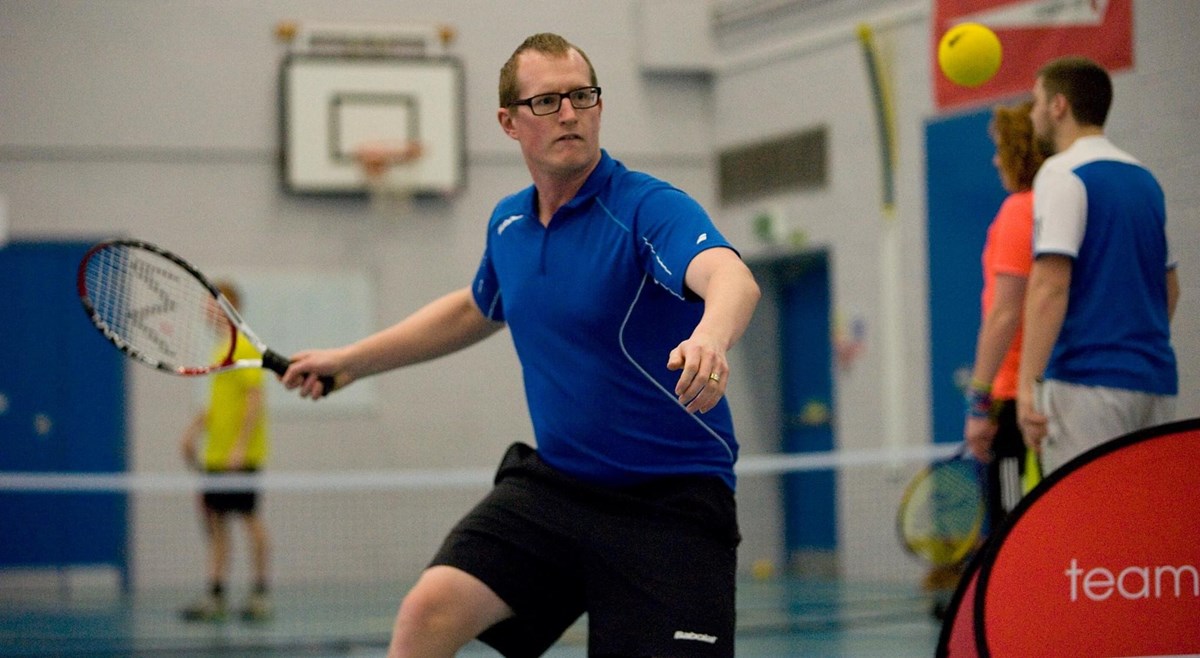
Realising I was gay at 13; three months later I made my first suicide attempt. That was how much of an impact it had on me. When it dawned on me that I was gay, I felt that my body was at odds with my brain, with my mind, and my environment. I thought I can’t be gay; I do sports, I’m from the Northeast, I have these types of friends around me, and I do these types of activities.
As a young kid, I thought that if you were gay – particularly in the 80’s – you were somebody who was very dirty, very nasty, horrible, or you were some sort of flamboyant character on the TV like Julian Clary, Elton John, or Freddie Mercury and I guess I was buying into a lot of the stereotypes of the age. I just couldn’t square that circle within myself, so it tore me apart. I internalised everything; I didn’t share that information with anyone, and that’s where the loneliness developed. I had a lot of people around me who I connected with on a superficial level, but in terms of mental health, I just assumed I was the only one with this problem and nobody would ever understand it, so why bother? So, I isolated myself in that time, and didn’t want to be a part of the world anymore.
I still carry the mental health scars today from that 13/14-year-old very confused child. At an impressionable age like that – when you have that level of mental health trauma – I don’t think it ever leaves you, so I still suffer with anxiety and depression to this day.
I’m still on medication, I still occasionally attend therapy sessions, but that is nothing to do with my sexuality now. Here today, I am a proud gay man and happily married to my husband. So, from that perspective, the scars I carry today derive from suffering with mental trauma from a young age and experiencing a difficult coming out as a young gay athlete.
The first person I ever told was my girlfriend as I felt she should know, with the bottom line being no, really, it’s not you, it’s me. I felt at the time – coming back to that element of loneliness – I was never going to have a long-term relationship.
I felt I had to choose between sport and being gay. Initially, I chose sport and threw myself into it as a player, as a career coach, and as a volunteer at my local tennis venues.
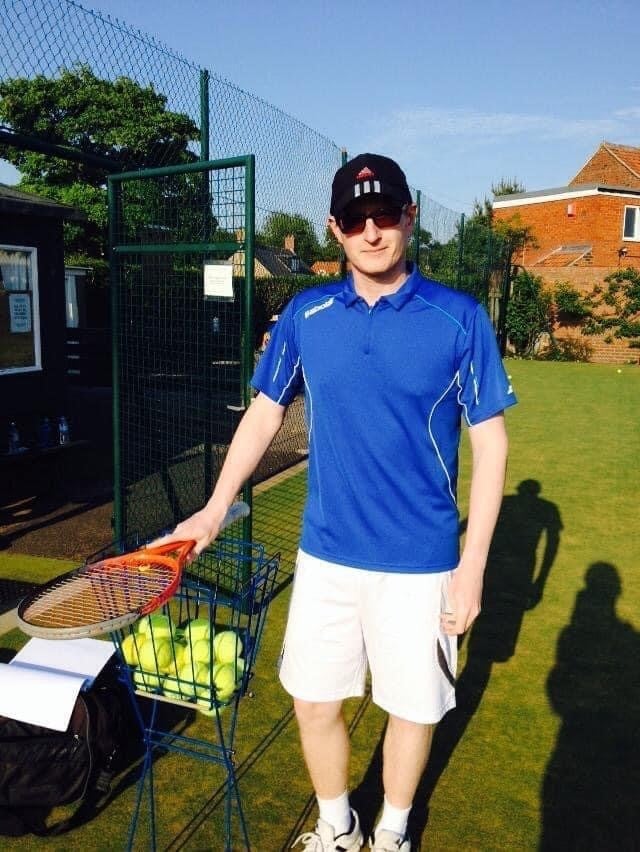
It was only when I came out to my family, my friends, and then eventually in my own workplace, that I actually started to connect with other people that were gay. It was then that I happened to meet my husband who has been the most supportive person in the world, and undoubtedly changed my life for the better.
That was a huge turning point for me – being able to be open with myself and be comfortable with my sexuality enough to be holding hands with another man down my local high street. Things like that, from a generational point of view, that may seem quite normal now, but when I was younger it certainly wasn’t the case. That’s why now I try to do as much visibility work as I can. That’s the reason why we do pride and try and do things like LGBTQ history month, and pride month, and pride marches, to show young people that you can be your authentic self and you don’t have to create barriers in your own mind.
The advice I would give anyone struggling or experiencing a similar journey to that of my own; you are not the only one. You’re not the only person who are having these feelings and worries about being different, and this doesn’t just have to link in with sexuality or gender identity; you can be different in many ways.
We’re living in a society where we are trying to fit in with social media and try to live up to be the best version of ourselves, rather than necessarily the authentic version of ourselves which is ultimately flawed. We’re all flawed. We must embrace and accept those flaws, as if we try and be perfect, then we’re setting unrealistic targets. That is where we can really do damage to our overall mental health.
Worryingly, at the moment, in the UK there is a mental health crisis amongst LGBTQ+ people, so my story is a common one. For example, 52% of adults in the LGBTQ+ community had a long-term mental health problem in 2018. That was more than double the general population. If you are a gay man, you are seven times more likely to contemplate suicide as opposed to if you are a heterosexual man. What really worries me is that those of the LGBTQ+ youth community are seven times more likely to have suicidal thoughts than their heterosexual counterparts. To counteract that, when visibility programmes happen in schools, not only do the mental health rates improve for LGBTQ+ people, but also for the general school populations.
Getting onboard with the LTA’s inclusion strategy, Open Court programme, our Pride in Tennis groups; supporting things like that can help a lot of people in improving their mental health, and occasionally – in my case – it can save lives. Tennis undoubtedly contributed to me saving my life.
Tennis undoubtedly contributed to me saving my life.
I don’t know where I would have been without that bubble of joy that I had at the tennis club when I was able to play on court freely, and just go and release all my pent-up stress by going down to the court and hitting a couple of shots in the fresh air with my friends. So, by opening tennis up to people from different backgrounds, we could improve everybody’s mental health.

